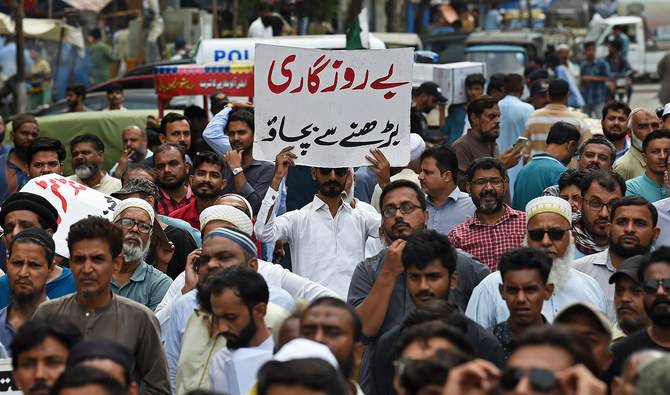
Economic policies that improve economic well-being are intertwined with the promotion of equality, poverty reduction, and an increased standard of living. The future of employment opportunities and the future of Pakistani youth is yet unknown, as the challenges of the energy crisis, IMF mandated petrol price hikes, and political instability are taking the table at the moment.
The future seems dark, as measures still need to be taken to secure an environment that allows businesses to flourish, that can support the IT industry, and stabilize the nation’s institutions. With skilled people in the workforce, it is possible to bring progressive change to an economy. This is a crucial time to create job opportunities with growth potential for degree holders. Think about the 2.5 million children in Pakistan who are out of school, and stand ready to be a part of the unemployment stream in the future.
Unemployment is a severe issue in Pakistan, with drastic consequences. Unemployment directly impacts people's living standards, and the unavailability of employment leads to distress and crime. It further adds to the deterioration of the ethical standards of society. Unemployment brings with it aggression, depression, anxiety, hopelessness, and restlessness, as these are all the psychological impacts of unemployment. One economic issue leads to multiple sociological and psychological distresses and lowers the nation's morale. The severity of the crisis needs to be understood. Taking measures to generate employment must be one of the nation’s top priorities.
Data on unemployment has yet to be officially published since 2020-21. The labor force survey by the government, last published in 2021, unveiled high unemployment rates for the 20-24 age group at 12.23% (10.06% for males and 18.68% for women). For KPK, it was 16.73%, 12.98% for Punjab, 7.84% for Sindh, and 9.19% for Baluchistan. The prevailing state of unemployment is similar for other age groups. After 2020 when the pandemic struck, unemployment statistics are expected to be higher by now. The rise in oil and electricity prices caused a slump in business, which is another reason to anticipate an elevated level of unemployment in the present.
According to the UNICEF Situation Analysis of Children in Pakistan report, "an estimated 22.6 million children between the ages of 5 and 16 are out-of-school at the primary, middle and secondary levels – 44% of the country's children (40% boys vs. 49% girls, a significant gender gap). These include children who have never gone to school and those who have dropped out."
The state of deprivation is rising in Pakistan; however, there is no proper framework to engage these children in school due to elevated poverty levels. Poor households prefer their children to stay in the field to earn rather than go to school. After a few years, there is no facilitation to absorb such a large scale of children, noticeably uneducated and unskilled, in the employment stream.
An economic survey in 2022-23 revealed that "more than 12.4 million Pakistanis have proceeded abroad for employment in over 50 countries through official procedures, as of December 2022." Such considerable brain drain leads to the loss of potential entrepreneurs and a shortage of important workers.
The unavailability of jobs for skilled people is linked with severe issues of brain drain. Educated people striving for better living standards, secure life, healthy opportunities, and growth incentives are leaving the country.
To overcome the evils of unemployment, the government must create ease of doing business, as flourishing businesses will generate employment opportunities.
Corruption and nepotism must be ended, and institutions must adhere to merit-based actions. Institutions need to commit to development and must identify gaps, so that more of the youth is engaged in employment opportunities.
The government needs to increase public spending on projects which can absorb the potential of highly skilled individuals. This will also help expand to the country's economy and overall productivity. Another priority must be creating skill learning platforms, where poor and low-income children can learn and become self-employed.
A prudent policy goal would be to target employment generation activities for skilled and degree holders, and unskilled women - so that they can become breadwinners and contribute to economic activity.

